Importance Of Agriculture: Agriculture has long been connected with the production of vital food crops. Agriculture now encompasses forestry, dairy, fruit production, poultry, beekeeping, mushroom growing, arbitrary, and other activities in addition to farming. Crops and animal products, for example, are now processed, marketed, and distributed as part of modern agriculture. Agriculture may thus be defined as the production, processing, marketing, and distribution of agricultural goods.
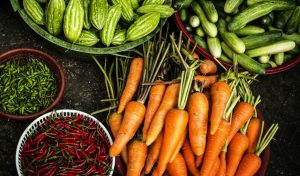
Agriculture is vital to the overall health of a country’s economy. Agriculture is an important part of any nation’s economic structure. Agriculture gives job possibilities to a huge section of the people in addition to providing food and raw materials.
Recommended: Advantages and Disadvantages of International Trade
Reasons Why Agriculture is Important
Agriculture is important for the reasons listed below:
1. Source of Raw Material: Agriculture is the primary source of raw materials for key businesses including cotton and jute fabric, sugar, tobacco, and edible and non-edible oils. Drugs, diesel fuel, polymer, and other significant sectors rely on these elements in ways that many people have no idea of.
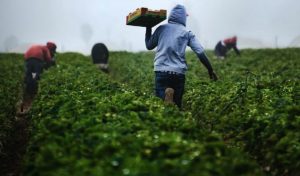
Many other sectors, such as fruit and vegetable processing and rice husking, rely heavily on agriculture for their raw materials. Raw materials are so vital in manufacturing that a country’s economic health is largely determined by how many raw materials it has.
2. Significance to the International Trade: A large amount of what is traded worldwide is agricultural raw commodities. Agricultural commodities such as jute, tobacco, spices, oilseeds, raw cotton, tea, and coffee, for example, account for around 18 percent of a country’s total export value. Countries with an abundance of certain goods export them and exchange for resources they lack.
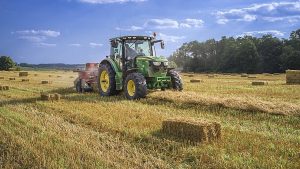
If a country’s agriculture fails due to a variety of factors, prices may rise, disrupting commerce. This shows that agricultural goods are still a significant source of foreign money for a country. The EU is currently the world’s largest dealer of agricultural goods, both in terms of imports and exports.
Recommended: Most Capitalist Countries In The World 2023
3. Contributes to National revenue: In terms of commerce, developing nations continue to rely heavily on agricultural exports to generate the majority of their national revenue.
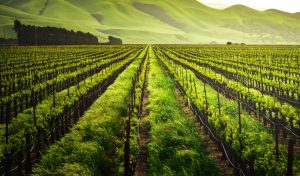
Agriculture, on the other hand, contributes a lesser percentage of national GDP to industrialized countries. While industrialized nations’ economies aren’t as reliant on agriculture as they formerly were, they would be severely harmed if all exports were abruptly halted.
4. Source of employment: Agriculture is among the most important sources of employment, and in many regions, it is really expanding. There are several employment accessible in this industry, including those as a farmer, harvester, agricultural equipment technician, scientist, and so forth.
Irrigations schemes, drainage systems, and other agricultural-related operations are vital because they provide more jobs. The agriculture industry in developing nations provides additional job possibilities for the labor force, reducing the high rate of unemployment in developing countries induced by population growth. Evidence demonstrates that focusing on agriculture is substantially more beneficial than spending in other sectors when it comes to decreasing poverty.
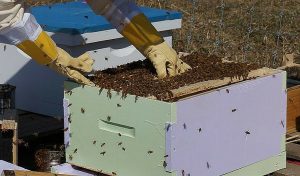
Recommended: Advantages and Disadvantages of being a leader
5. Economic Development: A country’s agricultural industry is crucial to its economic prosperity. This is due to the fact that agriculture employs a large number of people. When trade, national revenue, and employment all work together in a favorable way, a country’s poverty is alleviated and its economic growth is promoted.
Because great agriculture produces rewards rapidly, focusing on it is among the most effective strategies to accelerate growth and improve a country’s international status. As a result, it contributes to the creation of a favorable environment for a country’s overall economic development. As a result, agricultural expansion is crucial to economic development.
6. Heals the environment: Agriculture has the ability to either hurt or cure people. Farmers that value biodiversity on their property help the environment. More biodiversity leads to healthier soil, reduced erosion, improved water conservation, and happier pollinators. That too is excellent news for the environment, as agriculture is an integral element of the life cycle.
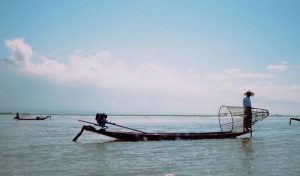
7. Source of Saving: Agriculture development may also enhance savings. The wealthy farmers of today began saving following the green revolution.
This extra amount might be put back into the agriculture industry to help it grow.
Recommended: Most technologically advanced countries in the world
8. Source of food supply: Agriculture is certainly the most essential element of the global food supply. The components in your meals originated from someplace, no matter where you ate or what you ate.
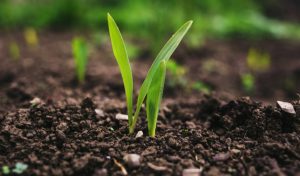
Every road leads to agriculture. It’s because their agriculture sectors are struggling in countries coping with food shortages and severe malnutrition. Fewer people go hungry while agriculture grows.
9. Supply of Food and also Fodder: Domestic animals require feed, which is provided by the agricultural industry. People get milk from cows, which is a type of protective food.
In addition livestock provides more food for more people.
10. Drives innovation in technology: Because productive agriculture is so important to a nation’s well-being, it has been the site of some very fascinating technological advancements.
Researchers and farmers have been working out methods to boost agricultural output, consume less water, and lessen negative environmental consequences using AI technology, blockchain software, gene editing, and other techniques. Agribusiness is among the most appealing and lucrative industries to function in for academics and technology firms.
Recommended: Countries with the highest number of scammers in 2023
11. Source of Raw Material: Agriculture is the primary source of raw materials for key businesses like cotton and jute fabric, sugar, tobacco, and edible and non-edible oils.
Many other sectors, such as fruit and vegetable processing and rice husking, rely heavily on agriculture for their raw materials.
12. It is inextricably linked to warfare: Because agriculture is such an essential aspect of a country’s infrastructure, it’s understandable that it would have an influence on conflicts and wars. The necessity for land to raise food has driven countless battles throughout history.
In more recent periods, notably during WWI, America’s farming economy exploded as a result of the necessity to send agricultural supplies to Europe. War may devastate the agricultural economy in nations that do not get aid, hurting people for decades. It’s hard to avoid mentioning agriculture’s link to war while addressing it.
Recommended: Ways of preserving culture and traditions
13. Agriculture’s current state represents our future: When it comes to pollution and climate change, the environment and agriculture bear the brunt of the repercussions first and foremost. Climate change’s influence on agriculture would ruin a country’s economy and finally clear the food supply unless significant measures are done.
Examine agriculture to have a better understanding of where humans will wind up. What is being done to adapt to a climate that is fast changing? What will the state of our food supply be like? The status of agriculture serves as a solid barometer for what the future may hold.
14. Food Security: A robust agricultural industry ensures a nation’s food security. Food security is the most important prerequisite for every country.
Food security avoids malnourishment, which has historically been seen as the most serious issues confronting third world countries. The main source of revenue for the majority of countries is agricultural goods and related businesses.
Recommended: Most Socialist Countries In The World 2022
15. Marketable Surplus: The agriculture sector’s expansion adds to marketable surplus. As the country grows, more people work in manufacturing, mining, and other non-agricultural sectors.
All of these people rely on food production, which they may get from the country’s marketable surplus. As the agricultural sector develops, production rises, resulting in an increase in marketable surplus. This is something that might be transferred to other countries.
Recommended: How To Start A Law Firm In Australia
16. Agriculture develops all aspects of a stable and healthy life: Agriculture is hard labor; it develops strength, agility, stamina, patience, perseverance and tones or builds the muscles and other parts of the body. It is really a good exercise routine. An agricultural inclined person is hardworking and busy, that person does not have the time to lazy, hungry or indulge in bad vices. Instead, that person will become a source of help or even an employer of labor to others.

Agriculture has a lot of areas; for people who go into farming; they will have to learn how to make ridges depending on the crop, till and plough the soil, watering or irrigation techniques, weeding, adding natural manure or artificial fertilizers are also necessary for the overall crop growth and viable development, sunlight and nature will finish up the rest coupled with the farmer’s diligence and how the crops are protected from diseases and other negative issues. For individuals interested in animals; they will have to be involved in raising and rearing different species of animals, feed them, clean and clear up the debris, take care of them especially during their breeding season and still make space for the animals to stay and grow effectively.
Plants and animals have a lot of products they give like the beautiful flowers can lighten up the environment, some can be used as ornaments or decorations, different colors, perfume scents, essential oil or substances for the body, paints, herbs and medicinal plants, tea and beverages, tasty fruits and flavors, wood or timber, rubber saps from trees fruit juices, eggs, milk, meat, horn, hide and skin for leather materials can be also be gotten. Food is needed for complete development of an individual, it supplies the body with proteins, vitamins, carbohydrates or energy, fats and oil, vitamins, water and other essential nutrients which will nourish the body, satisfy it, make it strong and healthy and keep the body away from malnutrition, kwashiorkor and other harmful diseases.
Recommended: Countries with the Most Beautiful Women in the world
Conclusion
Agriculture is both an art and a business that involves cultivating soil, growing crops, and rearing livestock. Agriculture was the beginning of civilization, and agriculture is still highly essential today, despite the fact that mankind has evolved greatly. Agriculture is the mainstay of a country’s economic structure. Agriculture gives job possibilities to a huge section of the people in addition to providing food and raw materials. Its importance is more visible in certain nations, but the fact is that agriculture is important to every country in the globe for one reason or another.

Edeh Samuel Chukwuemeka, ACMC, is a lawyer and a certified mediator/conciliator in Nigeria. He is also a developer with knowledge in various programming languages. Samuel is determined to leverage his skills in technology, SEO, and legal practice to revolutionize the legal profession worldwide by creating web and mobile applications that simplify legal research. Sam is also passionate about educating and providing valuable information to people.